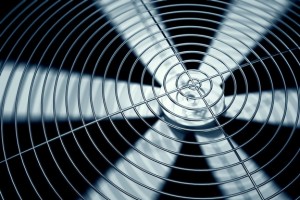Once you’ve decided that a heat pump really is the best option for your Kellogg home, you’ll still have a lot of options to consider. There are actually quite a few types of heat pumps and they can vary considerably in terms of their energy efficiency and other available features.
For instance, you can choose to go with a heat pump with a one-speed, two-speed or multi-speed compressor. Single speed compressors are only capable of operating at full capacity. That means that they’ll certainly be able to keep your home warm, but they may be working harder than they need to at some points.
A two-speed or multi-speed compressor, on the other hand, can be adjusted to more appropriately fit the heating and cooling needs of the moment. There will certainly be times when you don’t need your heat pump to be going all out, and the ability to regulate this level of performance can benefit you in several ways.
It will allow you to maintain a more consistent indoor temperature to be sure, but it will also reduce the overall wear and tear on your heat pump over time. If your heat pump doesn’t have to run all out all of the time, it simply won’t wear out as fast, and that will save you both money and frustration in the long run. It’s also worth noting that heat pumps with two-speed or multi-speed compressors are more easily integrated into a zone control system if you have one in your home.
However, regardless of what type of compressor your heat pump has, you’ll also have to examine the various heat pump models available to determine what their actual energy efficiency ratings are. Each heat pump actually comes with two ratings, one for heating and one for cooling.
The heating season performance factor (HSPF) reflects the heat pump’s heating efficiency, while the seasonal energy efficiency ratio (SEER) is a measure of its cooling efficiency. The higher both of these numbers are, the higher the efficiency of the unit. But you don’t necessarily need both numbers to be as high as possible to get the best heat pump for your home.
If you’re going to be using the heat pump more for cooling than for heating because of the climate where you live, you’ll want to make sure the unit you get has as high a SEER as possible, but you won’t have to worry too much about the HSPF. But if you’re going to need more heating than cooling, you should pay more attention to the HSPF than the SEER.
Continue Reading
Tags: Bonner County, Heat Pump, Heat Pump Installation, Heating Installation, Kellogg, Post Falls, Spirit Lake
Posted in Services | Comments Off on What Are Your Heat Pump Options? A Tip from Kellogg
 The HVAC systems in your home account for a large majority of your energy consumption—about 50% of all energy costs, actually. Therefore, it’s understandably important to you that you find the most efficient way possible to heat and cool your home. If you are looking for an electric-powered heating and cooling system, then you’d do well to consider a heat pump. And when you’re looking for Spokane Valley, WA heat pump services, you needn’t look any further than our team.
The HVAC systems in your home account for a large majority of your energy consumption—about 50% of all energy costs, actually. Therefore, it’s understandably important to you that you find the most efficient way possible to heat and cool your home. If you are looking for an electric-powered heating and cooling system, then you’d do well to consider a heat pump. And when you’re looking for Spokane Valley, WA heat pump services, you needn’t look any further than our team.